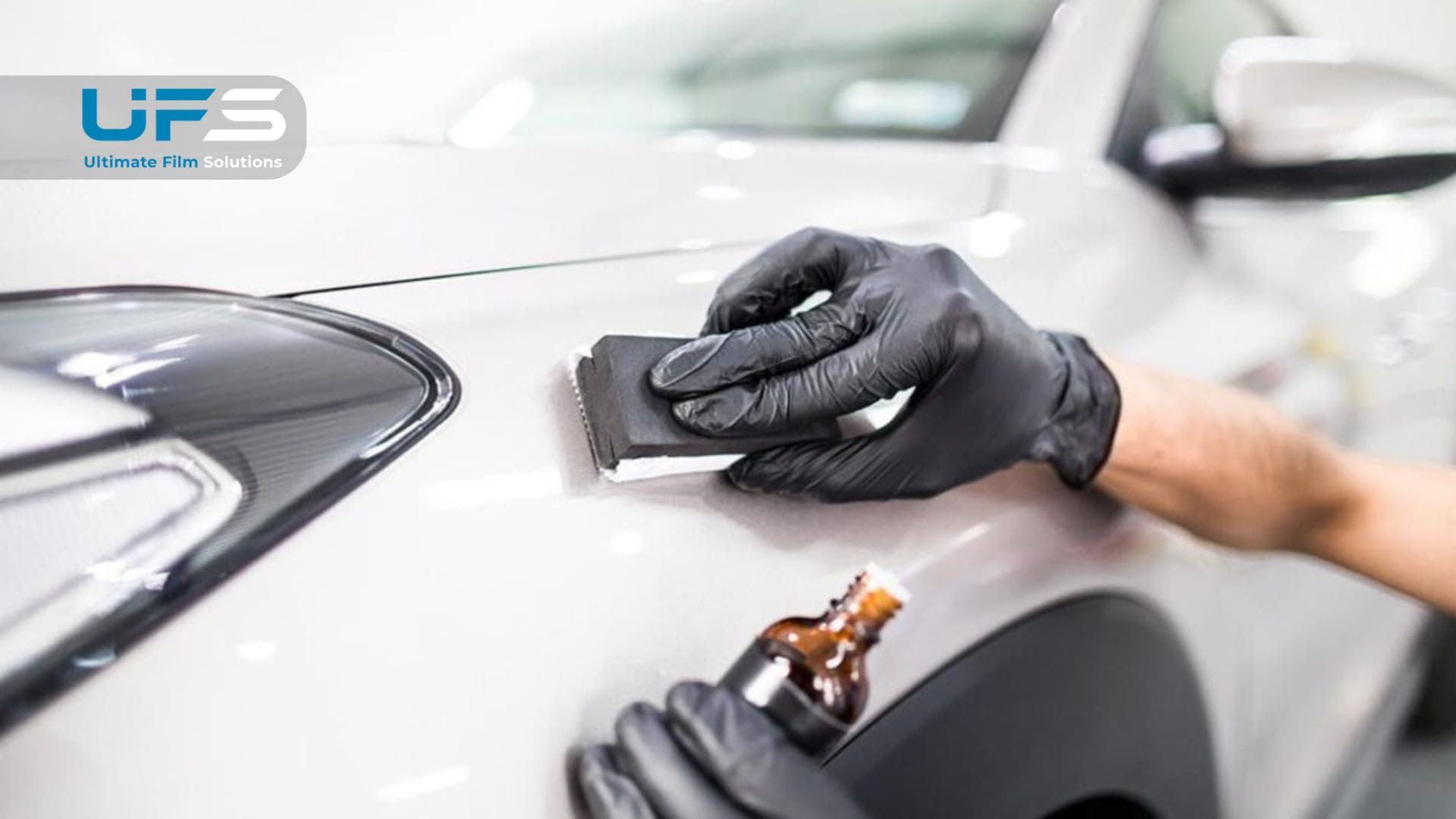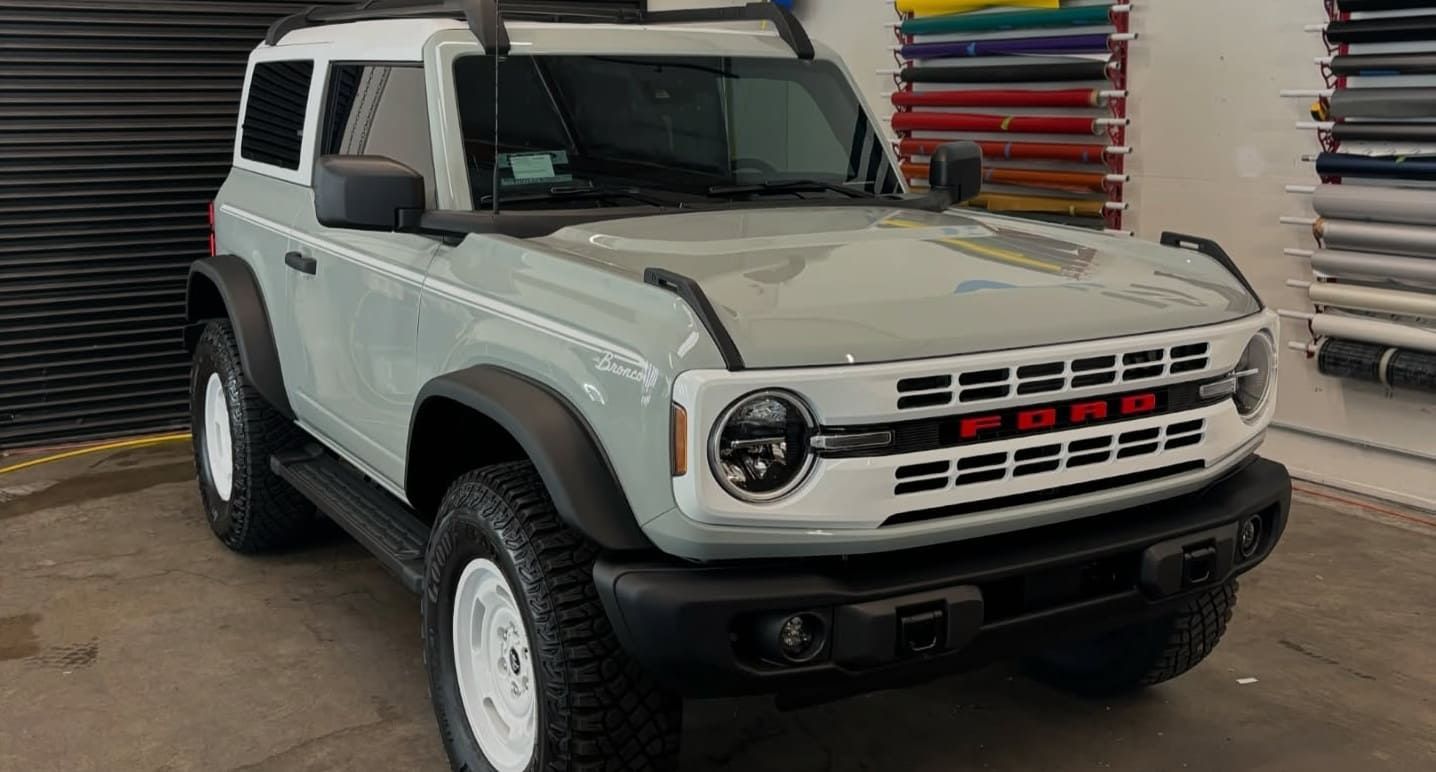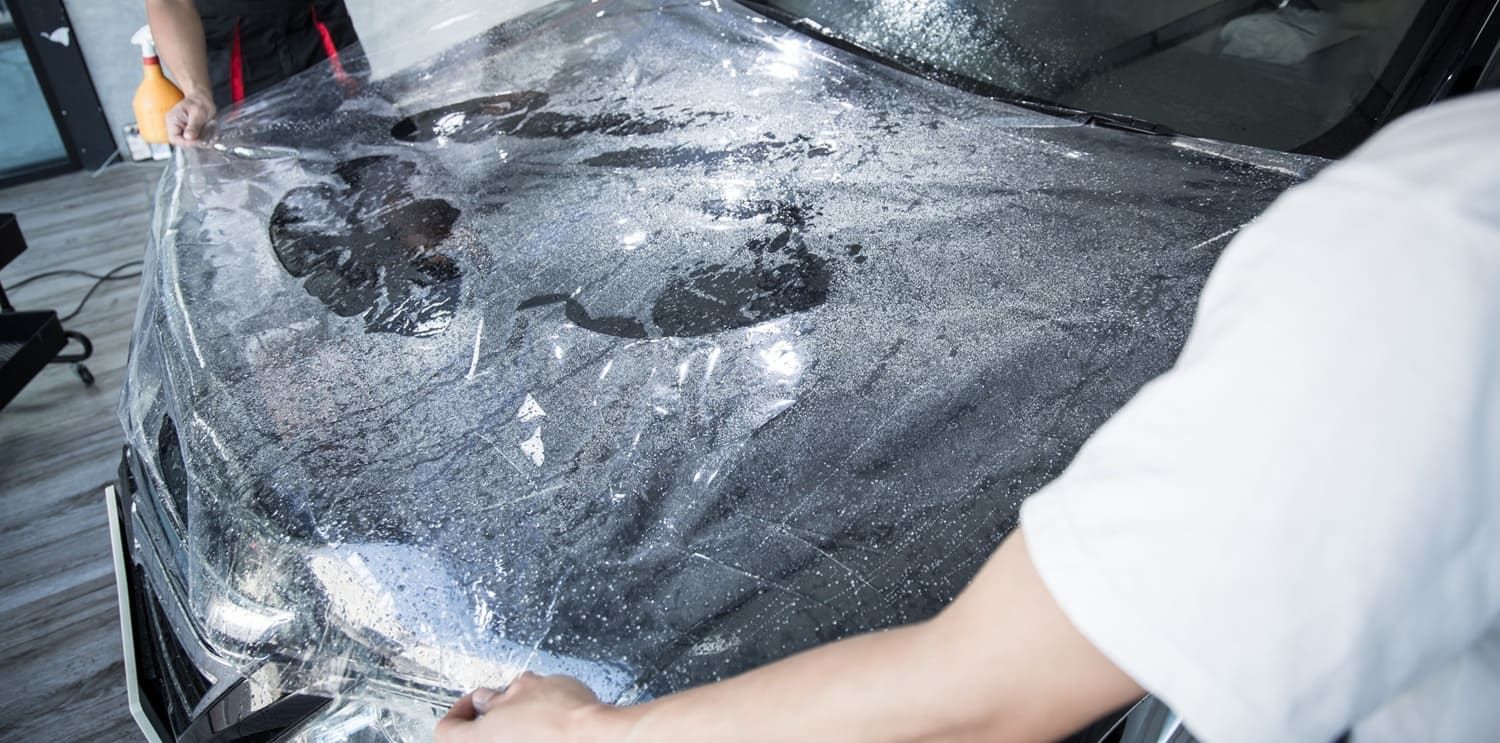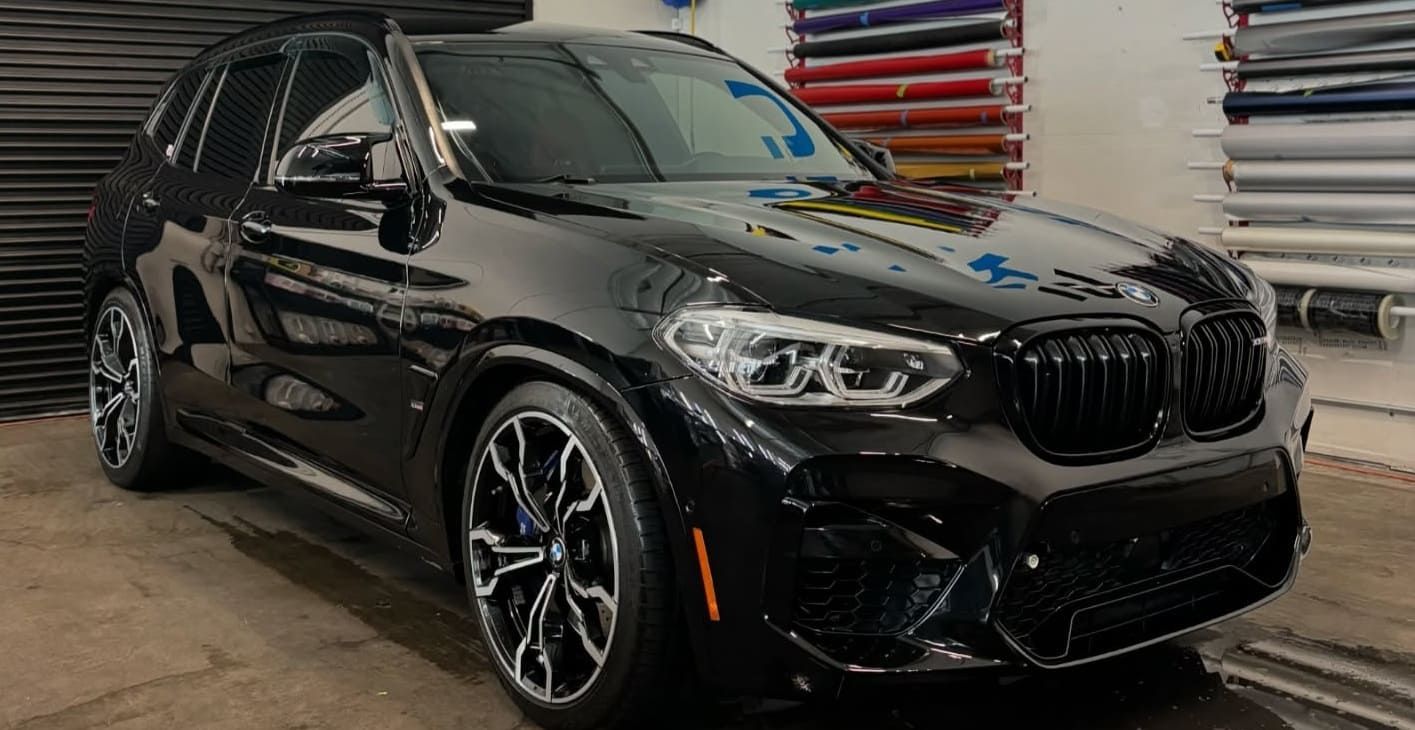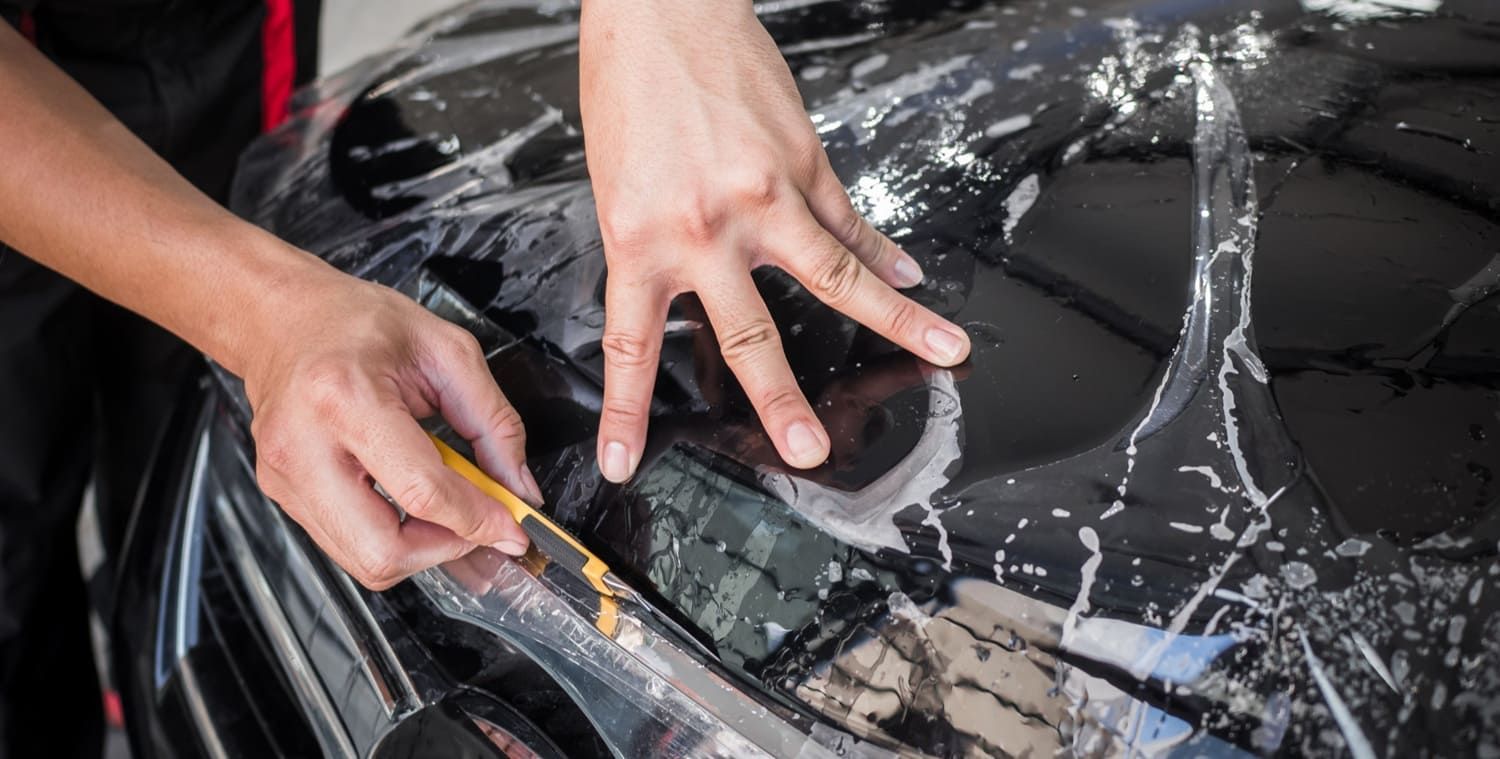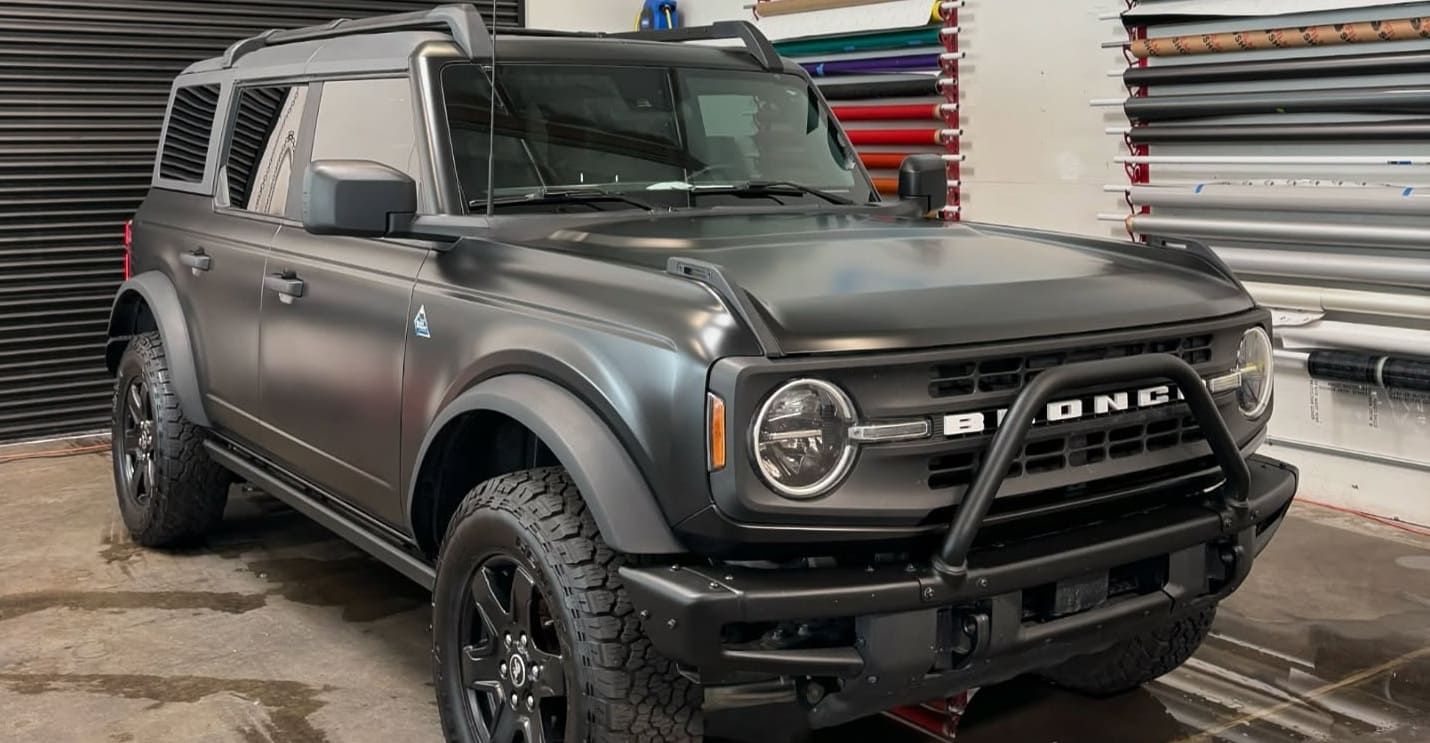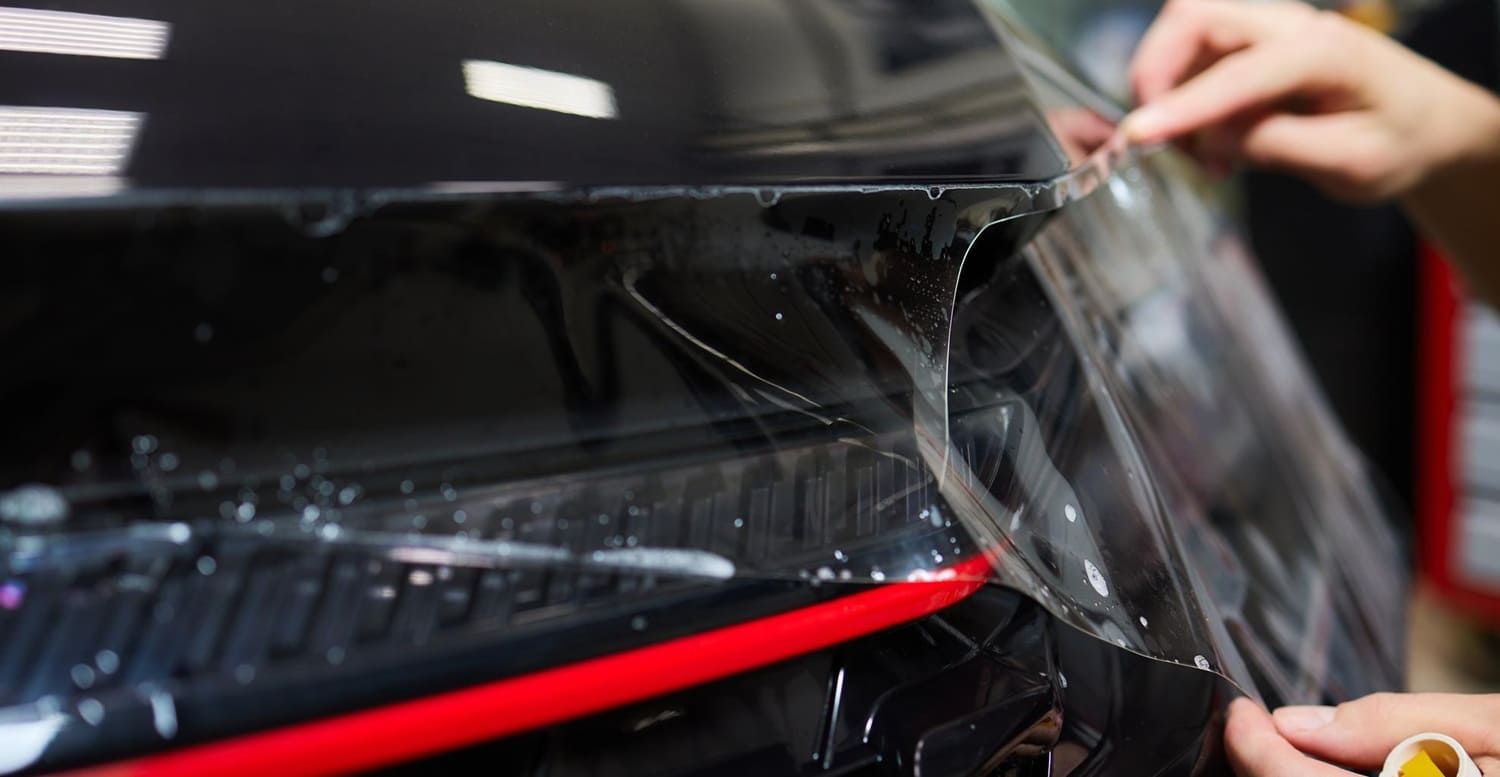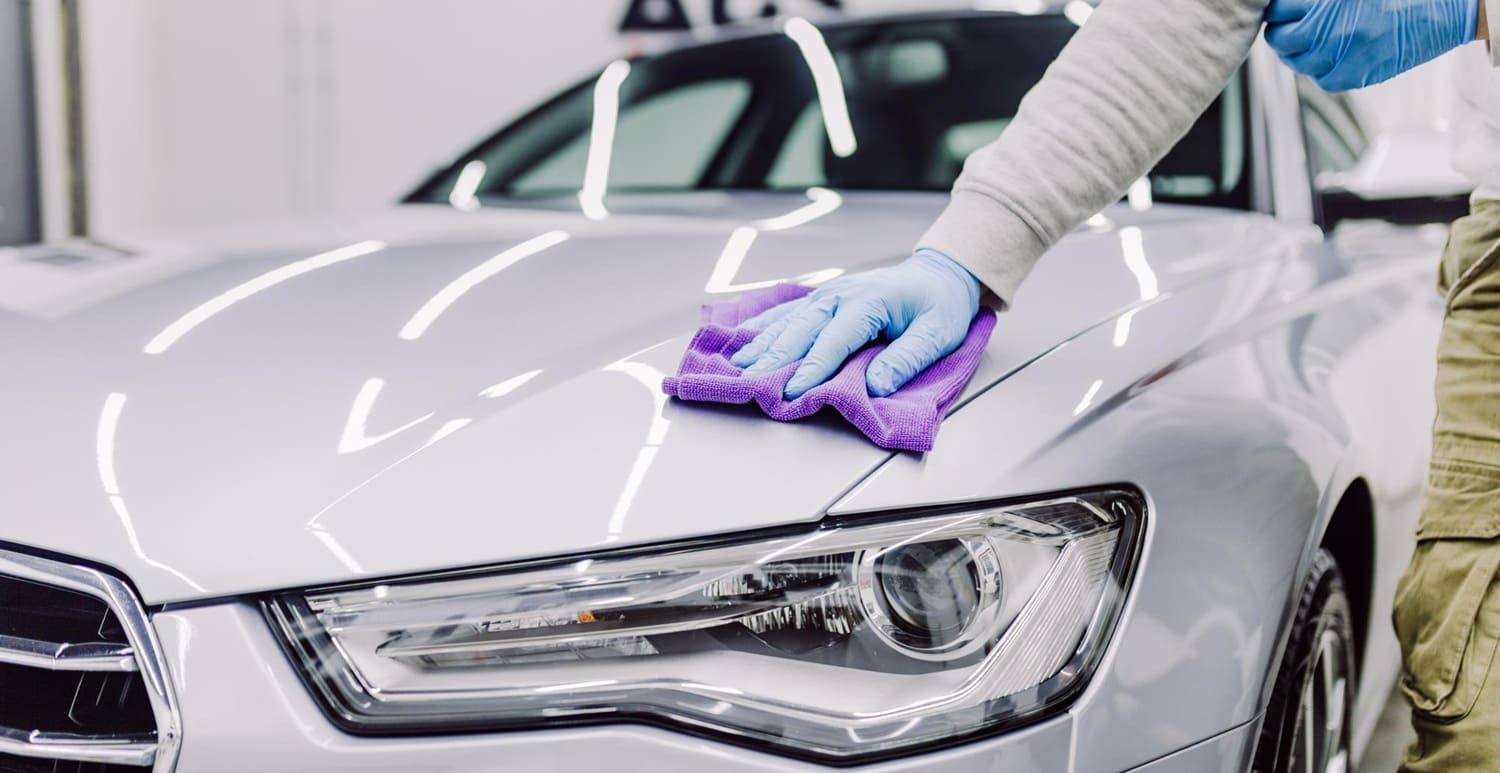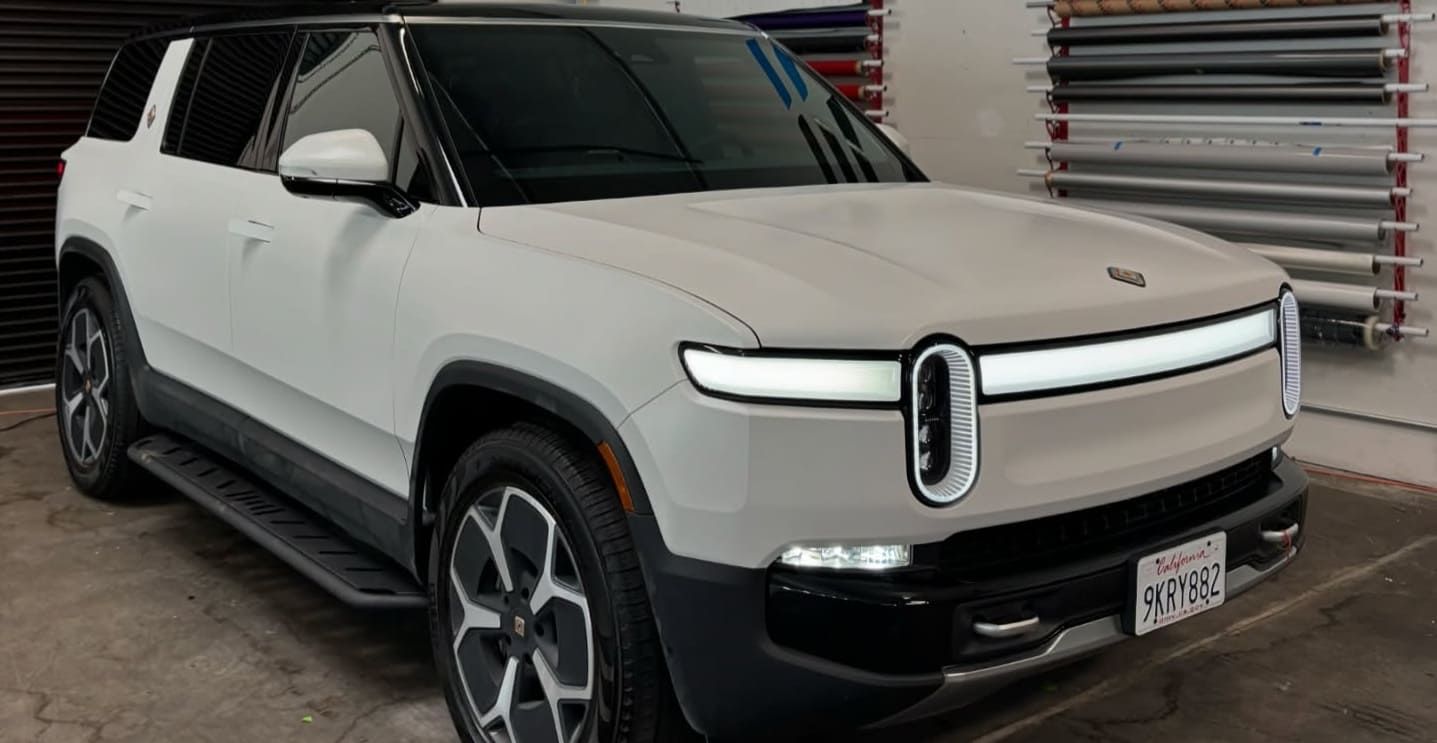Tesla PPF vs. Traditional Wax: The Modern Upgrade Your Car Needs
Tesla owners know the importance of maintaining their vehicle's sleek appearance. One key aspect of this is protecting the car's paint.
Traditionally, car enthusiasts have turned to wax for this purpose. Wax provides a shine and offers minor protection against the elements.
However, a modern solution has emerged: Tesla PPF. PPF, or Paint Protection Film, is a clear urethane material applied to the car's exterior. It's specifically designed to fit Tesla models and offers a more durable and long-lasting protection than wax.
This article will delve into the benefits of Tesla PPF over traditional wax. We'll explore aspects such as durability, maintenance, aesthetics, and cost-effectiveness.
Whether you're a current Tesla owner or considering becoming one, this information will help you make an informed decision.
So, let's dive into the world of Tesla PPF and discover why it might be the modern upgrade your car needs.
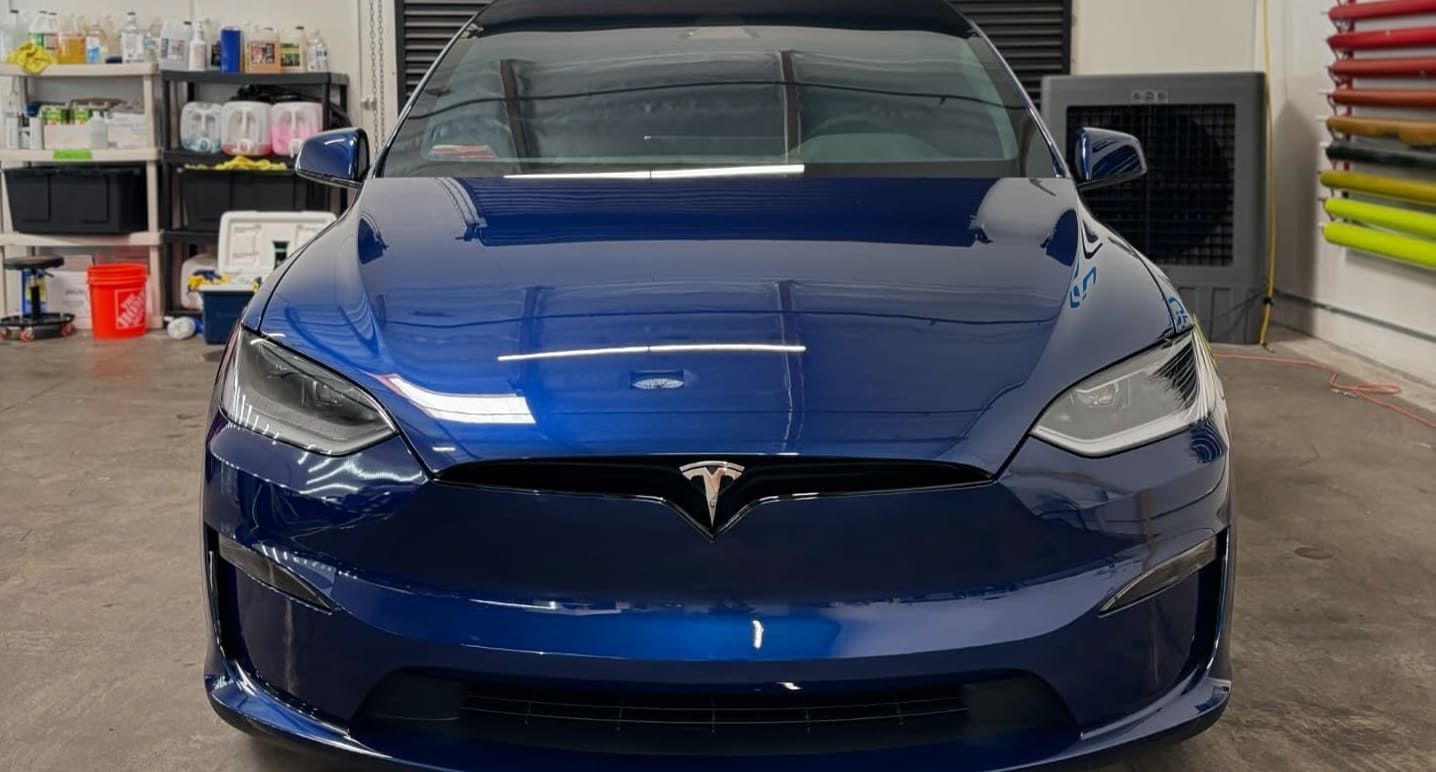
Understanding Tesla PPF and Traditional Wax
Tesla PPF, or Paint Protection Film, is a transparent film applied to vehicles. It serves as a shield, protecting the paint from chips, scratches, and environmental damage.
PPF is made from a durable urethane material. This material is known for its flexibility and strength, making it ideal for vehicle protection.
Traditional wax, on the other hand, is a long-standing method of car maintenance. Wax is applied by hand and provides a glossy finish.
Historically, car wax was used to enhance sheen. It's been around for decades, favored for its ease of use and immediate results.
Wax serves as a temporary barrier against pollutants. However, it does not protect against physical damage like PPF does.
PPF is a relatively new technology compared to wax. It has gained popularity due to its superior protective qualities.
Throughout automotive history, paint protection has evolved significantly. Early methods included simple waxes and polishes.
Over time, demands for better protection grew. This led to the development of advanced solutions like PPF for thorough paint care.
Today, both wax and PPF offer paint protection. Yet, they cater to different needs and preferences, as we'll explore further.
With this understanding, let's delve into the distinct benefits PPF offers.
The Benefits of Tesla PPF Over Wax
Tesla PPF offers remarkable durability. Unlike wax, which fades over time, PPF can last for years. This longevity makes it a worthwhile investment for Tesla owners.
Physical damage is a common threat to car exteriors. PPF is designed to fend off scratches, chips, and other abrasions, providing superior protection compared to wax.
Maintenance of PPF is straightforward. Once applied, it requires only routine washing. Wax, however, needs regular reapplication to maintain its benefits.
Aesthetic preservation is crucial for any Tesla owner. PPF keeps your car looking new by preserving its original paint condition. Wax can enhance shine but falls short in protecting the paint itself.
Enhanced resale value is a significant advantage of PPF. By keeping the paint pristine, PPF ensures that your Tesla retains its market value better than one protected with wax alone.
Wax needs frequent touch-ups due to weather exposure. PPF, in contrast, withstands harsh conditions without degrading, making it ideal for diverse climates.
The self-healing properties of some PPFs add another layer of protection. Minor scratches on the film can disappear with heat, maintaining a flawless look.
PPF’s clear application means it doesn’t alter your vehicle’s appearance. This clear layer does not yellow over time, unlike many wax products, which can discolor.
While wax provides an attractive shine, it attracts dust and dirt. PPF, on the other hand, repels grime, ensuring a cleaner vehicle surface for longer periods.
PPF also offers UV protection. It prevents the paint from fading under the sun, an area where wax does not perform as effectively.
The hydrophobic nature of PPF enhances its protective features. Water beads off, making cleaning easier and reducing water spots on the surface.
Tesla owners concerned about sustainability might prefer PPF. It reduces the need for frequent reapplication, making it an eco-friendlier option compared to the regular use of wax.
Choosing PPF is also about peace of mind. Many films come with warranties, which wax does not offer, providing extra assurance regarding their performance.
PPF can cover specific areas or the entire vehicle, offering customizable protection options. This customization caters to the unique needs of each Tesla model.
In summary, the benefits of PPF encompass long-term protection, ease of maintenance, and aesthetic preservation. These factors contribute significantly to maintaining and enhancing the vehicle’s value over time.
Installation: PPF vs. Wax Application
The installation of PPF is a meticulous process. It requires professional expertise to ensure precise application and maximum protection. Certified technicians use specialized techniques to fit the film perfectly to the vehicle's surface.
Wax application, by contrast, is often a DIY task. Car owners can apply wax at home with basic tools and materials. Although it’s simpler, achieving professional results can be challenging for non-experts.
Time is a significant consideration when comparing PPF and wax. The PPF installation process can take several hours, reflecting its complexity and the precision required. This time investment ensures thorough coverage and long-lasting protection.
Waxing, while quicker, requires frequent sessions. Each application may only take an hour or so, but regular reapplication is necessary for effective protection. This accumulates to a greater overall time commitment compared to PPF.
Professional PPF installation also comes with quality assurances. Technicians ensure the film adheres smoothly and without bubbles, offering peace of mind about the application’s durability.
DIY wax application lacks this professional guarantee. Mistakes such as uneven application or residue buildup can detract from the car's appearance and protection quality.
Choosing PPF over wax can ultimately save time in the long run. Though initially more time-consuming, its durability reduces the need for repeat applications. This makes it a convenient choice for Tesla owners seeking efficiency in car maintenance.
Cost-Benefit Analysis: PPF vs. Wax
The upfront cost of PPF can seem high. However, the long-term savings it offers can outweigh the initial investment. Once applied, PPF can last for years without needing replacement.
Wax, on the other hand, is cheaper at the start. Yet, over time, the costs can add up due to its need for frequent reapplication. Each waxing session, though not costly, aggregates to a significant expense over years.
PPF maintenance is minimal. It requires little beyond regular washing. This low upkeep is one of its significant advantages over traditional wax.
Conversely, wax necessitates constant care. Reapplying every few months is crucial for maintaining its protective qualities. This ongoing effort can be tedious for car owners.
When considering warranties, PPF often wins. Many options come with long-term warranties, ensuring quality and durability for several years.
Wax, lacking these warranties, relies on the application skill. Without a professional touch, its efficacy can vary greatly.
Here's a simplified breakdown of costs:
- PPF: High initial cost, low long-term expense, includes warranty.
- Wax: Low initial cost, accumulative expense over time, no warranty.
Ultimately, choosing PPF can be a smart investment. Its durability, low maintenance, and warranty provide valuable benefits. For Tesla owners, this modern option can prove cost-effective, aligning with their vehicle's cutting-edge standards.
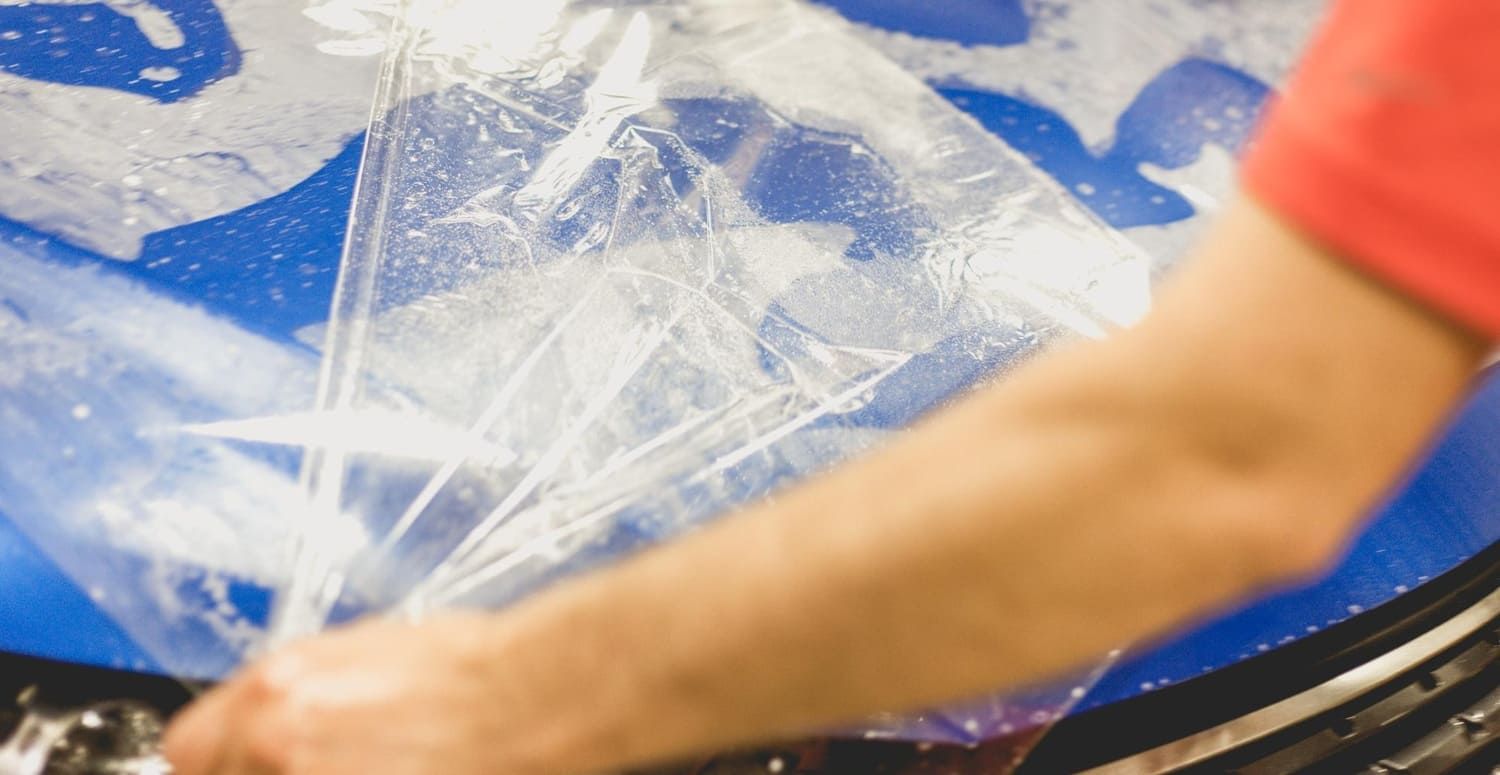
Environmental Impact and Sustainability
PPF offers significant environmental benefits. Its production involves sturdy materials that last long, reducing waste over time. The need for frequent replacements is minimized, unlike with wax.
Wax needs regular reapplications. These frequent applications produce more waste and use up resources repeatedly. Over time, this can harm the environment.
PPF's robust materials ensure longevity. This endurance lowers the frequency of new production cycles, fostering sustainability. In contrast, wax wears off quickly, prompting frequent product consumption.
Chemical exposure is also a consideration. Wax contains elements that may pose health risks during application and disposal. PPF, with its durable form, avoids these frequent chemical exposures.
Ultimately, PPF represents a more sustainable choice. Its durable nature reduces waste and lowers environmental harm. As Tesla owners consider protecting their car paint, choosing PPF aligns with greener and healthier practices.
Common Misconceptions and FAQs
There are several myths about paint protection films. Some people believe PPF peels off easily. However, high-quality PPF is designed to stick well with professional installation.
Many think PPF might damage the paint. This isn't true. PPF can actually preserve the paint under normal conditions.
A common question from Tesla owners is if PPF alters the car's color. PPF is clear and does not change the original color. It maintains the car's pristine look.
Another frequent inquiry is about maintenance. Once applied, PPF requires only routine washing like any car. No special treatments are usually needed.
Lastly, people wonder about the cost-effectiveness of PPF. Though initially pricey, it proves cost-efficient over time by reducing the need for frequent paint touch-ups.
Conclusion: Making the Right Choice for Your Tesla
Tesla PPF offers superior protection compared to traditional wax. It ensures long-lasting durability, safeguarding against scratches and environmental damage.
For those looking to maintain their Tesla's aesthetic and resale value, PPF is a wise investment. It's an upgrade that pays off over time through its reduced maintenance needs.
Considering the modern benefits of Tesla PPF, it stands as an ideal choice for those seeking peace of mind and enhanced vehicle longevity.
Call to Action
We'd love to hear your thoughts on Tesla PPF and traditional wax. Have you tried these paint protection methods on your vehicle?
At Ultimate Film Solutions, we specialize in premium Paint Protection Film (PPF) installation in North Hollywood and Sacramento, CA, offering the highest level of protection against rock chips, scratches, and environmental damage—especially for Tesla owners looking to preserve their vehicle’s flawless finish.
Contact us today for a free estimate, and feel free to share your experiences or pose questions in the comments section below. Your insights help us create a richer discussion on car protection and help others make informed decisions about protecting their investments.

